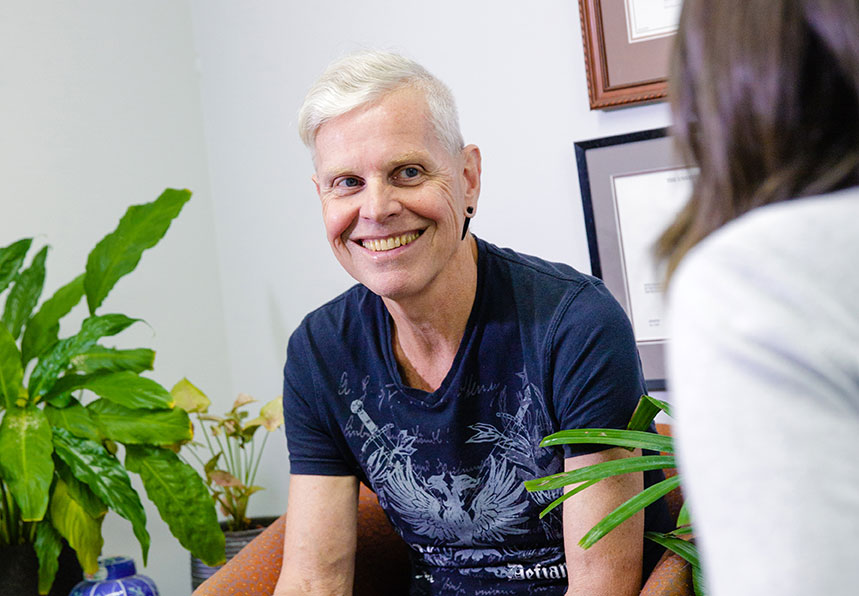
A resilience training program to improve the quality of life for people with multiple sclerosis (MS) has been developed by University of Queensland researchers.
UQ School of Psychology researcher Professor Kenneth Pakenham said the READY for MS Program showed improvements across a wide range of mental health factors for people with MS.
“People with MS experience lower quality of life and have higher rates of depression and anxiety than the general population,” Professor Pakenham said.
“Psychological distress can be worsened by the demands of adjusting to the disease and associated symptoms, while simultaneously having the potential to exacerbate some MS symptoms.
“People in our program reported increases in resilience, physical health quality of life and mental health quality of life, and lower levels of depression and stress.
“Usually the quality of life of people with MS is most likely to stay stable or deteriorate, so the fact that we were able to get comprehensive improvement across a wide range of quality of life, psychological and social health behaviours is promising.”
The READY for MS Program consists of seven weekly group sessions of 2.5 hours each, with a booster session five weeks' later.
It is a resilience training program based on Acceptance and Commitment Therapy (ACT).
“ACT works to increase psychological flexibility and resiliency by using mindfulness techniques that focus on having an open and responsive awareness of the present moment,” Professor Pakenham said.
“ACT involves behaving consistently with a person’s chosen values even in the presence of unwanted intrusive internal experiences such as emotional discomfort or self-critical thinking.
“MS can be a distressing and debilitating disease, so ACT encourages people to be flexible in their life perspectives, be fully aware of the present moment and commit to actions that provide a meaningful life direction based on their own values.”
MS is a complex degenerative neurological disorder that affects more than 2 million people worldwide.
It is the most common cause of neurologic disability among young and middle-aged adults, and is twice as prevalent in women as in men.
The cause of MS is unknown and there is currently no cure.
The course of MS is unpredictable, and symptoms—including cognitive impairment, sexual dysfunction, and problems with vision, feeling sensations, and bowel and bladder functioning—vary in nature and severity over time, and between individuals.
MS Queensland already offers the READY for MS Program to its members, and other MS societies around Australia have expressed interest in incorporating the program in their suite of services.
The Program has been translated into Italian and is being taught to psychologists in the Italian MS sector, with the view to rolling the program into other European countries.
Professor Pakenham is seeking funding for the digital delivery of the READY for MS Program.
The review of the READY for MS Program, co-authored by Dr Matthew Mawdsley, Dr Felicity Brown and Dr Nicola Burton, is published in Rehabilitation Psychology.
Media: Professor Kenneth Pakenham, k.pakenham@psy.uq.edu.au; Dani Nash, UQ Communications, dani.nash@uq.edu.au, +61 7 3346 3035, Twitter @UQhealth.
If you would like to support ongoing research in this area, please consider making a tax-deductible donation to the UQ School of Psychology.



